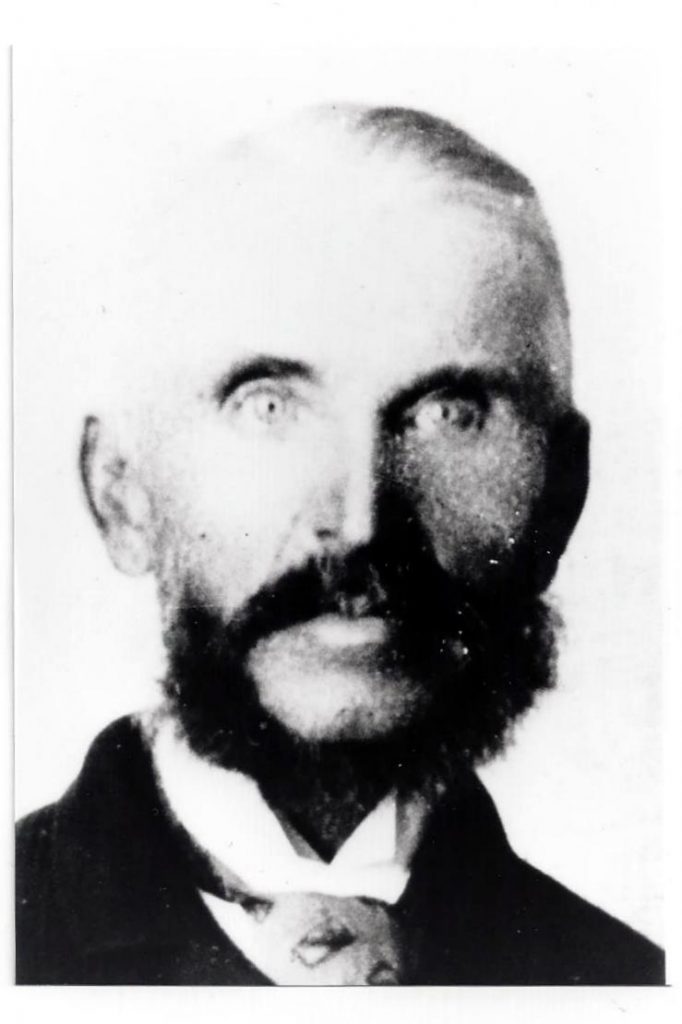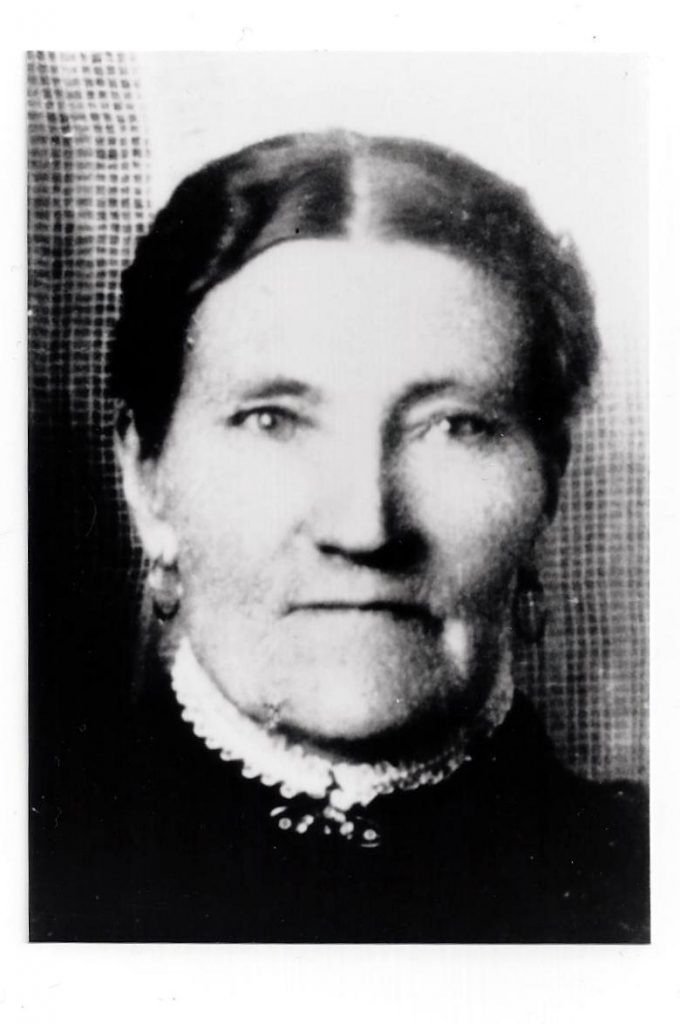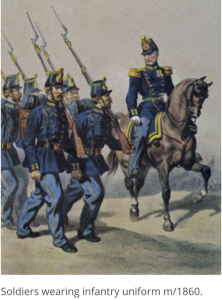


Anders Grön Johnson- Swedish Soldier for many years. The farmers took care of the soldiers to avoid military service themselves. His is the history of the Army Soldier System called “The Late Allotment System”
“My father enlisted as a soldier in the army before he was married and the Government gave the soldier a house and some land and a village had to keep them with grain and wood, so when mother (Anna Maria) married him she moved over there it was quite a long ways between so we did not get there very often. (To Vaddika to see her Hilda’s mother’s parents and Uncle Erick who was a couple years older then her)” By Hilda Peterson
The Late Allotment System (Yngre indelningsverket)
Infantry – Rotering
In the beginning of the 1680s King Karl XI reorganized the Swedish armed forces. The new Military Act was passed in the Parliament on October 27, 1682 and the new military system was called Indelningsverket or in English the Allotment System.The Allotment System meant that standing army was to be established in Sweden and Finland. This new allotment system known as The Late Allotment System or just The Allotment System was based on the former allotment system, the so-called Early Allotment System. Contracts was drawn up with the Crown and the farmers (freeholders) in each province. The freeholders (farmers) undertook the responsibility to maintain a soldier for the infantry regiment of the province. It was mandatory for the freeholders to participate in the Allotment System.Each infantry regiment numbered 1,200 soldiers which means that the farmers of a province were obliged to raise and maintain 1,200 soldiers for the regiment.To maintain a soldier for the regiment was costly and an extra burden to the farmers. To reduce the burden for individual farmers, each parish (socken) of the provinces was divided into districts (allotments) called “rote” and each rote consisted of 2 – 4 farmers. Thereby the costs was shared equally between the farmers of a rote.So, it was the duty of each “rote” to provide and maintain one soldier for the regiment(s) of the province.It is rote in singular and rotar in plural.So, it took 1,200 rotar to raise 1,200 soldiers for an infantry regiment. Each rote was to maintain a soldier including equipment such as uniform etc. and a soldier croft (soldattorp) for the soldier to live in when he wasn’t serving in the regiment. Croft is a British English term for a small homestead, i.e. cottage. The soldier croft also included some farmland. The soldiers’ wage system was in other words based on the subsistence economy principals. Why did the farmers (freeholders) agree to take on this extra cost to maintain soldiers for the arm? Well, the Early Allotment System was based on involuntary conscription and not only farmhands was drafted but also farmers, farmer’s son etc. This early system was disliked by all parts including the Crown but especially by the farmers.In the new Allotment System the rote farmers was exempted from conscription as long as they provided and maintained soldiers for the army. So, the farmers (freeholders) accepted the extra cost to avoid involuntary military service.The major freeholder of a rote was called stamrote or huvudrote. The other freeholders of the rote were called hjälprotar. One of the freeholders of a rote was appointed (by themselves) rotemästare (Master of the rote). Normally this was the freeholder on who’s land the soldiers croft was located. He was the freeholder in charge of the rote and had the responsibility to make sure that the soldier received the wage and the payments in kind the soldier had the right to from the farmers of the rote.This system of keeping infantry soldiers for an infantry regiment was called “Det ständiga knekthållet” and the principle was called “Rotering”
Hilda Johnson's Letter describing life in Sweden
Erick is Anna Maria's half brother
Written by Hilda Peterson concerning Erick’s early days.
Dear Niece, February 10, 1936.
I was glad to hear from you and I will try and answer some of the questions the best I can. It seems like that my memory is still poor but I will be glad to tell what I can.
I don’t know much about his childhood as were not born at the same place. My father enlisted as a soldier in the army before he was married and the Government gave the soldier a house and some land and a village had to keep them with grain and wood, so when mother married him she moved over there it was quite a long ways between so we did not get there very often.
That village was called Shafthammar and where mother and Uncle were born was called Vaddika. I did not see him can’t remember more than once and we had a mishap. He had stone swinging in his hand and I got in the way so it hit me in the forehead and it bled. He was there with his mother. I can’t remember anymore about it than that I was afraid that they would scold him. He was eleven years old when his mother died. After his mother died my mother thought that they had to move there and take care of the family as Aunt Josephine was young too. And Aunt Stava was a cripple. We moved there but it was hard on Father as he did not have horses and implements to farm with. They had an auction and he bought things. It was quite different for them as they had it so good where they lived. My father’s father was living with us there. I was seven years old and Uncle’s father was there with us as long as they had the farm and my great grandmother lived with us too. It was my mother’s grandmother so it got to be quite a family. Uncle Erick stayed there till he went on his mission, but we were a happy family. When his mother died, I guess I must have been with my mother there then as I can remember seeing her die and then I forgot everything else only that your father had gone to catch fish for her and when he came home she was dead. Then my mind is blank, but after that my mother and father gave up their soldier home and moved back there where my mother was born, as they had a farm.
The farm was rented from a big landlord but my great grandparents and my grandparents had lived there, so after my grandfather died my grandmother married your father’s father. I don’t know anything about him before that but knowing your father Erick, you would think that his father would have been a very bright and intelligent man but I guess he had not had any schooling so he could not read nor write and mechanical he was not. He was a very hard worker with the axe and the spade, but if the handles came off he could not put them on. Your father did not get his intelligence from him, neither temperament, for his father was very hot tempered. Well, my father bought at the auction, the horses & implements & took care of the farm for they could not. Aunt Stava was an invalid, Aunt Josephine was about 14, Uncle only 11, and his father needed a home so they all stayed there. After that we grew up together. He was 4 years older than me. We used to herd cows and horses in the field. There were big piles of stones in the hills and we used to build houses of tem. He built houses for me and there was one big hill there that puts me in mind of the Hill Cumorah now. There was one end of it that was lower and gravelly and when we had the chance we used to dig in the gravel and we had an idea that there should be something inside of that hill. When Uncle was on his last mission, he told me he visited these places. He wished that I could have been with him. How we should have enjoyed those memories. We always lied to be together. We used to eat bread and milk out of the same bowl lots of times. I can’t remember my grandmother more than she was sick and I saw her die. I can remember my Great grandmother better. She lived longer. She was over 80 when she died. I did not see my grandfather, but they said he was a very kind and good man. Uncles father stayed with us as long as my father had the farm, after uncle had gone on his mission. He was there and died while your father came back on his second mission.
After I got older so that we went out together among the young people, we got very much attached to each other, for he was so good. I never saw him angry. He never swore, or used tobacco or drank. He had strong character. He would not be led astray. As for religion, we belonged to the State Church— that was Lutheran. We went to that church until a revival began at one time. We did have maybe what you call religious to belong to the state church. We went to dances. I mentioned revivals, but that cam after. His room as a child, I don’t know, but I have to tell about his room after he was older. After we moved there, he and his father had a room together joining the kitchen. There was a little room that we used for a storeroom and he wanted to fix that for himself, so he cleaned it and papered it. He had a bed and two chairs and a half round table, varnished with a gilt flower in the middle. A nice curtain for the window and he got a stove. I don’t know where he got that, as there were no stoves used then. There was no chimney to that room so he just put the stovepipe through the roof. I kept that room clean. We had that room to ourselves. If we could not be together in daytime, we had to hace some talks in the evening, so I went in there before I went to bed. We seemed to have so much to talk about. When we were working, as we had to do in the fields in summertime, we always worked close together so we could talk. If we went anywhere, whether it was to work or to church, we were together. It seemed like we could not be separated. It seemed like the folks were so used to us being together, so if there was any work to do, they put us together. While we were younger, my parents did not believe in playing cards, but he had found some cards—only low ones—so he wrote kings and queens. So when we went out to do chores at noon, we would go up on the hayloft and play cards, for a while it was fun! I guess because we had to steal it, but we got over that. We did not play cards anymore. I don’t think that he ever played cards again. He had his girlfriends and I had boyfriends, so we were not friendly that way, but I don’t know how two people could be truer friends than we were. We used to wonder and say we did not know how we could separate for we realized that we could not be together all our lives. The time came I mentioned a revival, and we got religious then, but the religion we heard was not satisfactory so we did not join any sect. A few young people went together and we were reading the bible until a Mormon Elder came and I guess you knew C.P. Larson. We both embraced the Gospel and were baptized the same day. About a year after, he was called on a mission as a local Elder. He was willing to go and I was willing for him to go, but we worried over saying “Good-bye”, so I have to tell how that happened. He had to take the steamer to Stockholm and that passed Oregrund where your folks lived, so a few of us went with him and we stayed there at your Mother’s home. The steamer was to come by there at eleven o’clock in the evening and they had to row out to the steamer. While we were sitting talking we heard the whistle so we all rushed to get the boat that went out, but when we got there, that boat had gone. There was a girl there with us, I don’t know now who she was, but she got hold of a boat and he jumped in. I don’t think we had time to shake hands, so that worry was over. We only wrote to each other after that. My Father and he were very chummy. There was never an unkind work between them, and we were a very happy family. Uncle was looked up to by both old and young. I wish I had the language to tell more about him for he was good to all. I have forgotten so much.
Written by Hilda Jansson Peterson, Erick Gillen’s stepniece



